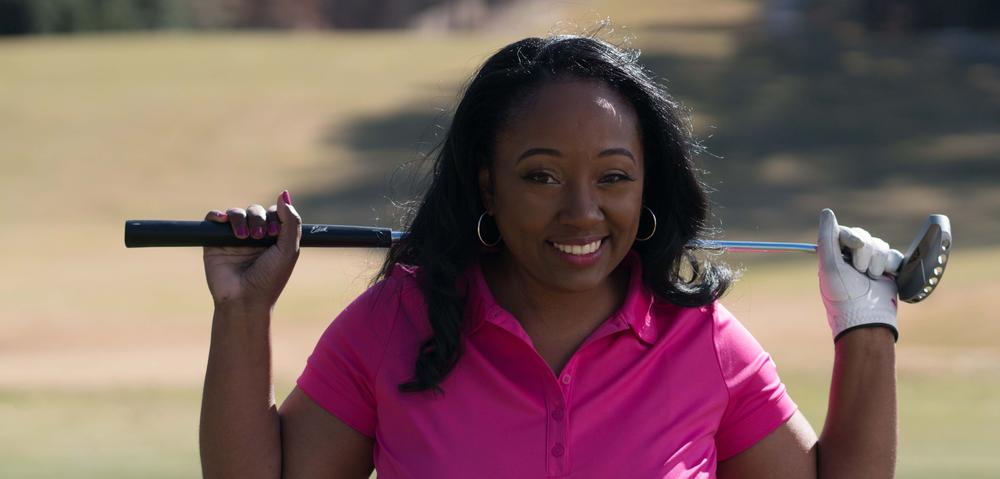Section Branding
Header Content
Black Girls Golf Is Leveling The Playing Field In Georgia
Primary Content
Tiffany Fitzgerald worked in the same Atlanta-based corporate office for two years before she realized colleagues didn’t know her name. As the only African-American woman in her department, colleagues just referred to as the “black girl in marketing.”
The moniker worked, until the department hired another black woman.
It was then Fitzgerald realized she was indecipherable from a woman she didn’t even resemble. She realized she was invisible — and, to her shock, had been the entire time.
“I did what all of the senior African-American professionals told me to do,” Fitzgerald said. “I went and got a couple power suits, attended conferences, got to work early and stayed late. I kept my head down and worked really, really hard because I thought that my work ethic and intelligence would help me level the playing field. But that just wasn't the case.”
The starched suits and early mornings weren’t enough. Tiffany knew she needed to do something different; she just didn’t know what.
“As a young person new to corporate America you really don't know what you don't know. There’s so many unwritten rules,” the young professional said.
One of those unspoken rules resulted in an empty office every sunny Friday afternoon. Like clockwork, the high-powered execs would stroll through the office in polos and khakis asking who wanted to “go hit balls.”
None of the women ever got an invite. But they all got déjà vu when Monday’s meetings would inevitably arrive with changes to the project.
“I figured out that these people were very familiar with each other and had a relationship that extended past the office,” Fitzgerald said. “The project comes up on the golf course, [and] they have a discussion because most of the people are there already. They’ve now had a meeting.”
And everyone except for her was in attendance.
“They didn't invite me because they assumed I didn't play golf. And here's the thing: They weren’t wrong.”
But they would be. She’d never held a golf club before, but now she was perfecting her swing on the course, taking lessons and learning a new set of unwritten rules.
“I had no exposure to golf before that. And it was probably the most uncomfortable and most intimidating experience I've ever had in my life,” Fitzgerald said.
Because even wider than her learning curve was the gaping hole of diversity within the sport: black women make up less than one percent of the golf industry.
In an effort to get more practice partners she began to teach her friends how to play, but soon realized those lessons could go far beyond her friend group. Eight years later, it has. More than 3,000 women learn and play under Black Girls Golf, the non-competitive league Fitzgerald founded in 2011.
Although headquartered in Atlanta, the league boasts membership across the country and hopes to introduce 20,000 black women to the sport by 2020. But ultimately, Fitzgerald founded the organization so black women could find a home on the golf course.
“Little black girls right now can't turn on the television and see themselves reflected in the game,” Fitzgerald stated. “It was really important to build a community around golf where black women would feel accepted and there would be no question that they were welcomed in this space.”
While Black Girls Golf does aim to provide that sense of belonging, Fitzgerald hopes to foster a deeper belief amongst the women who join. Because golf did grant her access, but it also gave her agency.
“If these women walk away with anything, I want them to walk away knowing that any place they go to, they belong. Be confident in that,” Fitzgerald said.
That “black girl in marketing” who kept her head down in the office is long gone.
All of her colleagues know her name now. They call her Tiff.

